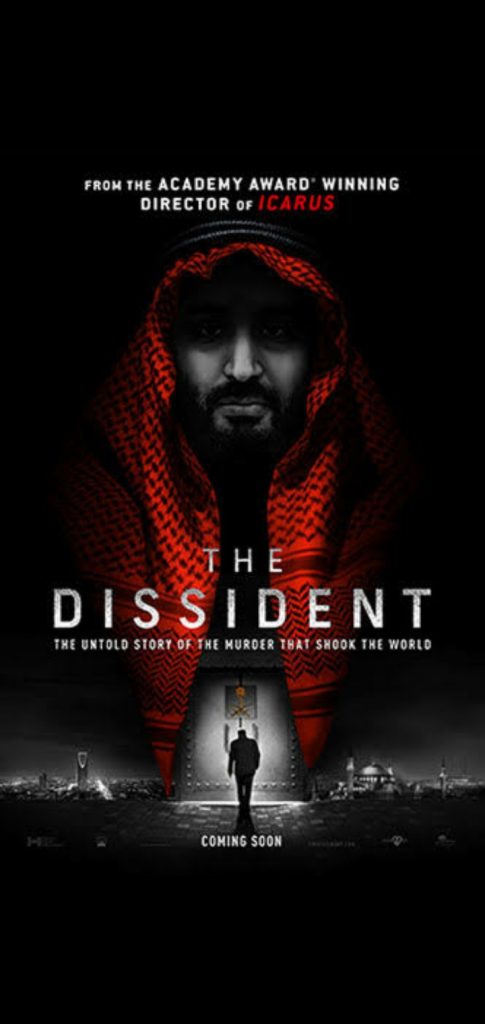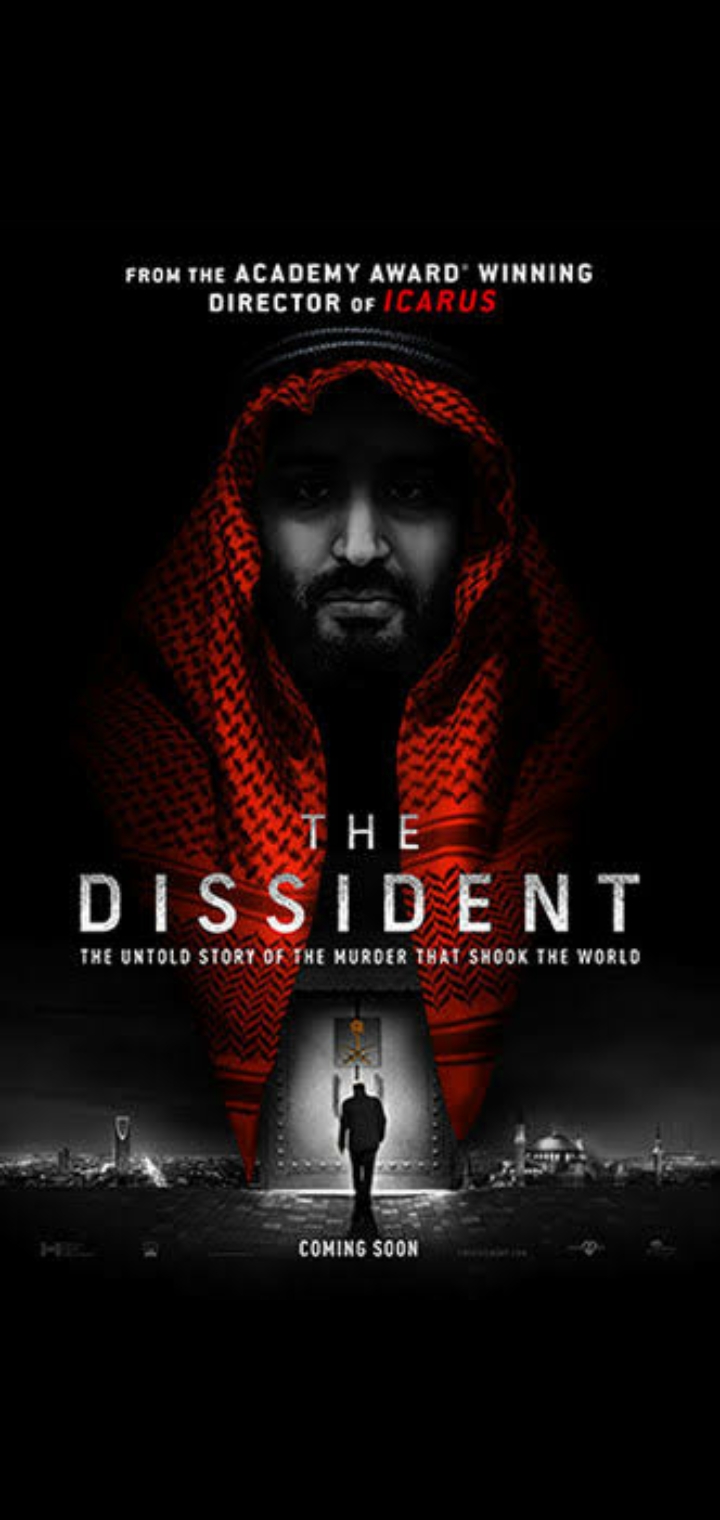
On 2nd October 2018, Jamal Khashoggi, the prominent Saudi dissident and Washington Post Columnist, walked into the Saudi Consulate in Istanbul, Turkey and was murdered by “state forces using state resources.” The question as to whether said murder was sanctioned by the Saudi Crown Prince, MBS, has since been answered in the affirmative by senior figures from the U.N. to major Intelligence Agencies and, quite frankly, the dictates of common sense.
Released last year on Video on Demand after Netflix and other streaming platforms “wouldn’t touch it,” “The Dissident” is an arresting follow up to director Bryan Fogel’s searing Oscar winning documentary “Icarus,” that chronicles Khashoggi’s transmutation from a journalist ensconced within the Saudi elite, to a reformist, and then a dissident.
Unlike many international observers swept up by the optimism generated by the reforms proposed and partly implemented under MBS’ grand Vision 2030, Khashoggi recognised that the impact of socio-economic change would be dulled by the absence of political freedoms, chief of which being the freedom of expression.
Following a brutal crackdown on critics of MBS’ regime, Khashoggi fled to Washington D.C, leaving his wife and children behind, and resolved to support those “languishing in Saudi cells” for the crime of voicing a dissenting opinion.
Column after column, he excoriated the contradictions of a regime desperate to project a global image of progressivism while maintaining a domestic program of political repression. Unbeknownst to him, this intolerance for dissension had reached digital proportions in the form of State sponsored bots and trolls spreading misinformation on social media platforms and, inevitably, hacking the phones of both Khashoggi and his fellow intrepid dissident- Omar Abdulaziz.
The irony of this tragic story is that Khashoggi was more of a reformist, simply asking for “the bare minimum” to express an alternative opinion, than a dissident agitating for revolutionary change. And as is often the case with political upheavals, it is the youth, here Omar “so impatient, full of action, full of manly pride and friendship,” that aids the sympathetic insider to confront the depth of the requisite change.
Together they engineer a breathless plan to combat digital despotism and its primary modus operandi of misinformation. The plan bears fruit, albeit, absent Khashoggi’s presence, who disappeared into the grim abattoir that was the Saudi consulate in Istanbul.
Under pressure from Turkish investigators, the international media, the thinning presence of investors at Davos, and Khashoggi’s dogged Fiancé, the Saudi government belatedly admitted to the murder. What they of course omitted, which Fogel deftly reveals via the chilling contents of a transcript capturing the events prior to and during the killing, was the premeditated and obscene method of the murder and MBS’ self-evident complicity.
Despite global outrage over this atrocity, the Saudi government escaped without sanction; helped, no doubt, by the abject failure of moral leadership from Trump.
While I haven’t been this enraged since watching Costa-Gavras’ Missing, the visceral power of this riveting documentary also fortified my conviction in the good and, ultimately, existential fight against tyranny and those who tolerate it.
“The Dissident” reaches the apotheosis of filmmaking in its ability to both entertain and edify.
Watch it.
By C.C Okoye





